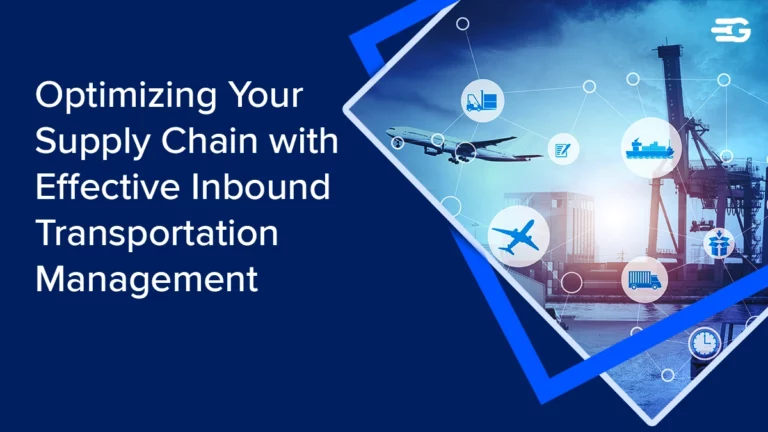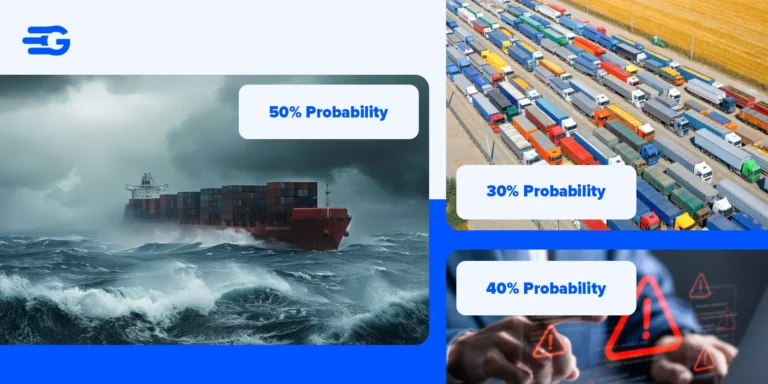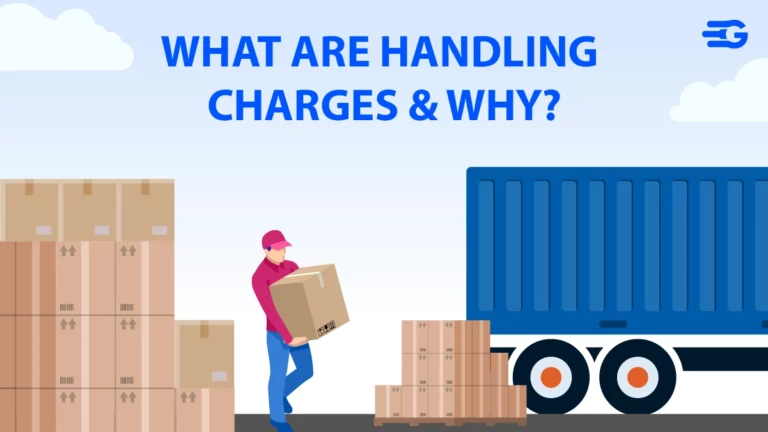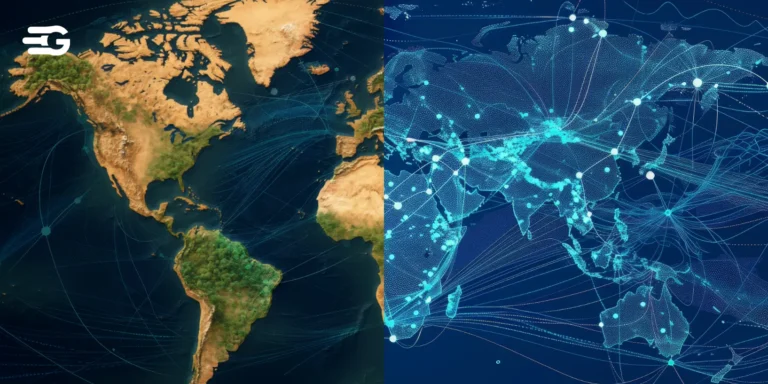From Borders to Boom: How Global Trade Management (GTM) Fuels Your Business
Defining Global Trade Management
Global Trade Management (GTM) solutions have been offering advanced solutions that serve as indispensable tools, streamlining and automating various aspects of the trade process, including customs compliance, logistics optimization, and trade financing. Enabled by the power of technology, GTM solutions empower businesses of all sizes to navigate the complexities of international trade with unparalleled ease and precision.
Powered by cutting-edge technology such as artificial intelligence, machine learning, and data analytics, GTM solutions provide businesses with unprecedented insights and capabilities. They enable real-time monitoring of regulatory changes, allowing companies to adapt swiftly and stay compliant in an ever-evolving regulatory landscape.
GTM solutions also play a pivotal role in mitigating risks associated with global trade, such as supply chain disruptions, trade disputes, and compliance violations. GTM’s predictive analytics and risk assessment capabilities address potential challenges and further enable overall supply chain visibility before they escalate into major issues.
GTM solutions cater to businesses of all sizes, from small startups to multinational corporations, democratizing access to advanced trade management capabilities.
The Importance of GTM in Today’s Economy
GTM plays a pivotal role in facilitating the smooth flow of goods, information, and capital across diverse regions and regulatory frameworks. At its core, GTM ensures compliance with ever-changing trade regulations, helping businesses work through the maze of customs requirements, tariffs, and trade taxes imposed by governments worldwide.
Alongside, GTM solutions provide crucial visibility into supply chain processes, offering insights into production status, inventory management, and transportation logistics. By leveraging real-time data and analytics, businesses can optimize supply chain operations, reduce real-time data and analytics, businesses can optimize their supply chain operations, minimize risks, and enhance overall efficiency.
In addition to compliance and visibility, GTM solutions play a crucial role in trade financing, facilitating transactions between commercial trade partners and financial intermediaries. From managing letters of credit to facilitating supplier financing, GTM solutions enable seamless financial transactions that underpin international trade.
GTM solutions act as catalysts for global trade growth by fostering collaboration and coordination among trading partners. By connecting buyers, sellers, customs agencies, banks, and freight forwarders on a unified platform, GTM solutions break down silos, streamline communication, and accelerate the pace of cross-border transactions.
In a nutshell, GTM solutions are the cornerstone of modern global supply chains, empowering businesses to expand their reach, mitigate risks, and capitalize on the boundless opportunities of the global economy. As businesses continue to navigate the complexities of international trade, GTM remains a critical enabler, driving efficiency, compliance, and growth in the global marketplace.
The Scope and Capabilities of GTM Solutions
Core Components of GTM Solutions
GTM solutions are like Swiss Army knives for international trade, offering a comprehensive suite of functionalities and services to streamline and optimize various aspects of the trade process. At their core, GTM solutions encompass three key components: trade compliance, logistics management, and trade finance.
First and foremost, trade compliance is a crucial aspect of GTM solutions. These solutions help businesses navigate the complex web of regulations and requirements imposed by different countries and regulatory bodies. From ensuring proper item classification to facilitating communication with government authorities, GTM solutions ensure that businesses remain compliant with international trade laws and regulations. They offer functionalities such as restricted party screening, import/export documentation management, and compliance with duties, tariffs, and trade taxes.
Technology’s Role in Enhancing GTM
Advanced technology plays a crucial role in revolutionizing Global Trade Management (GTM), offering a myriad of tools and solutions to optimize international trade processes for businesses worldwide. These technological advancements automate and streamline various aspects of global trade, making operations more efficient and cost-effective.
One significant way technology enhances GTM is through the automation of customs filings. By leveraging sophisticated software solutions, businesses can simplify the complex process of preparing and submitting customs declarations. This automation ensures accuracy and compliance while saving valuable time and resources.
Technology enables efficient due diligence screening, allowing businesses to screen parties, commodities, and destinations against government lists of restricted entities. This automated screening process helps mitigate the risk of engaging in transactions with restricted parties, safeguarding against potential penalties and reputational damage.
Additionally, advanced technology facilitates duty management by providing tools to leverage Free Trade Agreements (FTAs), duty drawbacks, and duty deferral programs. By automating the management of these programs, businesses can maximize the benefits of duty reduction initiatives while minimizing administrative burdens.
Overall, technology empowers businesses to navigate the complexities of global trade with confidence and efficiency. By harnessing the power of automation and data analytics, businesses can optimize trade processes, enhance compliance, and capitalize on opportunities in the global marketplace.
Navigating the Challenges of Global Trade
Overcoming Complex Global Trade Barriers
Navigating the intricacies of global trade presents a multitude of challenges for businesses, ranging from geopolitical tensions to regulatory hurdles and complex supply chains. One common challenge is the ever-changing landscape of international regulations, with each country imposing its own set of rules and requirements. This variability can lead to confusion and inefficiencies in trade operations.
Geopolitical tensions also pose significant barriers to global trade, as trade relationships between countries may be strained or disrupted due to political disputes or conflicts. Such tensions can result in trade restrictions, tariffs, or even trade embargoes, impacting businesses’ ability to conduct cross-border transactions smoothly.
Furthermore, managing complex supply chains adds another layer of complexity to global trade. Coordinating multiple suppliers, transportation routes, and logistics partners across different regions requires careful planning and execution to ensure the timely and cost-effective delivery of goods.
Despite these challenges, businesses can overcome global trade barriers by leveraging technology, fostering strong relationships with international partners, and staying informed about regulatory changes. By proactively addressing these challenges and implementing strategic solutions, businesses can navigate the complexities of global trade and unlock new opportunities for growth and expansion.
GTM’s Solution to Trade Complexities
GTM systems serve as indispensable tools for businesses grappling with the complexities of international trade regulations. These systems provide comprehensive solutions to help companies navigate the intricate web of global trade rules and requirements effectively.
One key feature of GTM systems is their ability to centralize and automate trade compliance processes. By maintaining up-to-date information on trade regulations from various countries, GTM systems ensure that businesses remain compliant with ever-changing requirements. From managing product classifications to facilitating communication with government authorities, these systems streamline compliance tasks, reducing the risk of non-compliance and associated penalties.
Additionally, GTM systems streamline customs documentation and filings, simplifying the preparation and submission of customs declarations. By automating these processes, businesses can improve accuracy, efficiency, and timeliness in customs compliance, ensuring smooth cross-border trade operations.
GTM systems provide businesses with the tools and capabilities needed to navigate the complexities of international trade regulations effectively, enabling them to conduct trade operations with confidence and compliance.
The Strategic Advantages of Implementing GTM Systems
Streamlining Operations and Reducing Costs
The implementation of GTM systems offers a plethora of benefits. Those trickle down to utility in almost every nodal point of the supply chain. However, if we have to pinpoint, here are the advantages of GTM system integration.
One of the primary benefits of integrating GTM solutions is the automation of repetitive tasks involved in trade compliance and logistics management. By automating processes such as customs documentation preparation, duty management, and compliance checks, businesses can reduce manual errors and labor costs associated with these tasks. This automation not only saves time but also enhances accuracy, ensuring that trade operations run smoothly and efficiently.
Besides, GTM systems provide businesses with better visibility and control over their supply chains, allowing them to optimize inventory levels, transportation routes, and procurement processes. With real-time data and analytics provided by GTM solutions, businesses can make informed decisions that drive cost savings and operational efficiency.
Moreover, GTM systems facilitate collaboration and communication among trading partners, enabling seamless coordination in supply chain activities. By streamlining communication channels and standardizing processes, businesses can minimize delays and errors, ultimately reducing operational costs associated with inefficiencies and disruptions.
In essence, integrating GTM solutions into business operations offers tangible benefits in terms of streamlining operations and reducing costs, enabling businesses to achieve greater competitiveness and profitability in the global marketplace.
Enhancing Compliance and Mitigating Risks
One of the critical roles of GTM (Global Trade Management) systems is enhancing compliance with global trade regulations while mitigating operational risks. These systems provide businesses with the tools and capabilities needed to navigate the complex landscape of international trade regulations effectively.
GTM solutions help businesses stay updated with the latest trade regulations and requirements across different countries and regions. By centralizing trade compliance information and automating compliance checks, these systems ensure that businesses adhere to all applicable laws and regulations, reducing the risk of non-compliance penalties and legal issues.
Moreover, GTM systems offer features such as restricted party screening, which enables businesses to screen trading partners, customers, and suppliers against government watchlists to avoid engaging with restricted entities. This proactive approach helps mitigate the risk of inadvertently conducting business with sanctioned or prohibited parties, safeguarding the company’s reputation and financial stability.
Additionally, GTM solutions provide visibility into supply chain processes, allowing businesses to identify and address potential risks proactively. Whether it’s monitoring shipment delays, assessing geopolitical tensions, or tracking inventory levels, these systems enable businesses to mitigate operational risks and make informed decisions to protect their interests.
In summary, GTM systems play a crucial role in enhancing compliance with global trade regulations and mitigating operational risks by providing businesses with the necessary tools, information, and visibility to navigate the complexities of international trade effectively.
The Future of GTM: Trends and Innovations
As we look to the future of Global Trade Management (GTM), several emerging trends and innovations are poised to shape the landscape of international trade. One of the most significant trends is the increasing adoption of advanced technologies such as artificial intelligence (AI), etc.
AI is revolutionizing GTM by offering predictive analytics and automation capabilities that enhance decision-making and streamline trade processes. AI-powered algorithms can analyze vast amounts of data to identify patterns, optimize supply chain routes, and predict market trends, enabling businesses to make informed decisions and respond quickly to changing market dynamics.
Similarly, blockchain technology is gaining traction in GTM for its ability to provide secure and transparent transactions and streamline documentation processes. By leveraging blockchain-based platforms, businesses can create immutable records of transactions, track the movement of goods throughout the supply chain, and verify the authenticity of documents, reducing the risk of fraud and enhancing trust among trading partners.
Another significant trend shaping the future of GTM is the ongoing digital transformation of global trade processes. With the increasing digitization of trade documentation, electronic customs filings, and online trade platforms, businesses are moving towards a paperless and more efficient trade environment. This digital transformation not only accelerates trade processes but also improves transparency, compliance, and collaboration among stakeholders.
Furthermore, the integration of data analytics and real-time visibility solutions is poised to revolutionize GTM by providing businesses with actionable insights into their supply chains. By harnessing data analytics tools, businesses can optimize inventory management, identify cost-saving opportunities, and mitigate risks, ultimately enhancing the efficiency and resilience of their global trade operations.
Overall, the future of GTM is characterized by the convergence of advanced technologies, digital transformation, and data-driven decision-making. By embracing these trends and innovations, businesses can unlock new opportunities, overcome challenges, and stay competitive in an increasingly complex and dynamic global marketplace.
Conclusion: The Path Forward for Global Trade Management
Embracing Global Trade Management (GTM) solutions is paramount for businesses aiming to thrive in the global market. These solutions serve as indispensable tools, providing businesses with the capabilities to navigate the complexities of international trade seamlessly. By leveraging GTM solutions, businesses can ensure compliance with ever-changing trade regulations, streamline logistics operations, and optimize supply chain processes.
Furthermore, GTM solutions offer invaluable insights into market trends, customer preferences, and emerging opportunities, enabling businesses to make informed decisions and stay ahead of the competition. Whether it’s managing customs documentation, mitigating risks, or reducing operational costs, GTM solutions empower businesses to operate efficiently and effectively on a global scale.
Moreover, by embracing GTM solutions, businesses can enhance collaboration with trading partners, improve visibility into supply chain operations, and accelerate the pace of cross-border transactions. In essence, GTM solutions are not just tools but strategic enablers that empower businesses to unlock new growth opportunities, expand their global footprint, and achieve sustainable success in today’s interconnected world of international trade.
Getting Started with GTM
Getting started with Global Trade Management (GTM) solutions requires careful consideration and planning. The first step is to assess your business’s specific needs and objectives in relation to international trade. Identify the key pain points and challenges you face in managing global trade operations.
Once you have a clear understanding of your requirements, research and evaluate different GTM platforms available in the market. Look for platforms that offer comprehensive functionalities covering trade compliance, logistics management, and trade finance. Consider factors such as ease of use, scalability, and compatibility with your existing systems.
When selecting a GTM platform, it’s essential to choose a reliable technology provider with a track record of success in the industry. Look for vendors with expertise in global trade regulations, a robust support system, and a commitment to continuous innovation.
In this context, GoComet offers many features that are helpful for global trade, such as real-time shipment tracking, automated documentation, and several other integrated services.
Before implementing a GTM solution, ensure that your team receives adequate training and support to effectively utilize the platform. Collaborate closely with your technology provider to customize the solution to meet your specific business requirements and workflows.
Lastly, establish clear goals and metrics to measure the success of your GTM implementation. Monitor key performance indicators such as compliance rates, cost savings, and operational efficiency to track the impact of the GTM solution for your business operations. With careful planning and the right technology partner, adopting GTM solutions can help your business, streamline global trade operations and achieve greater success in the international marketplace.






